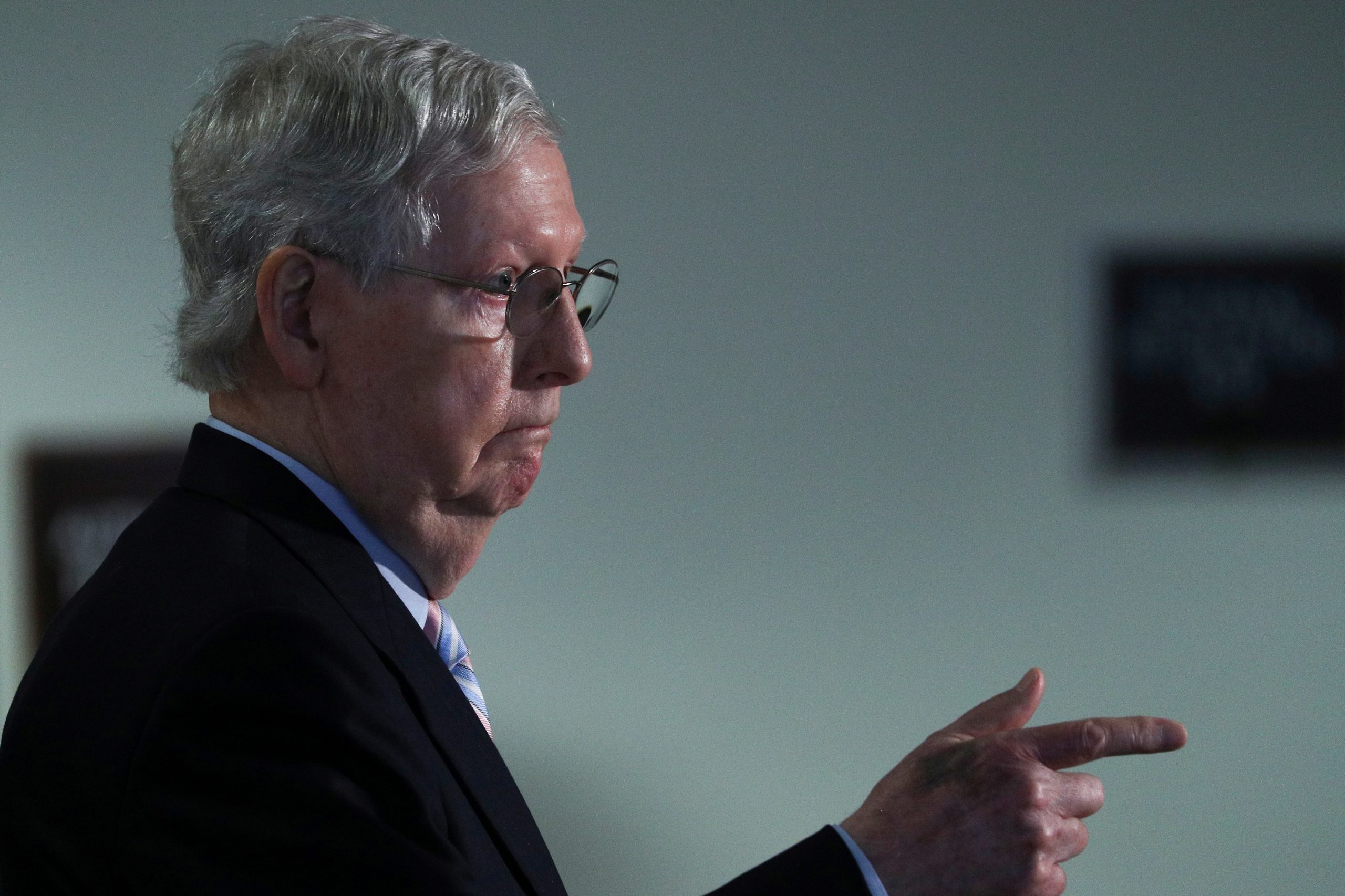As coronavirus aid negotiations between top White House officials and Democratic leaders in the U.S. Congress bogged down over the past week, the question reverberating through near-empty Capitol hallways has been “Where’s Mitch?”
That’s Mitch McConnell, the Senate majority leader with the reputation of being a legislative mastermind and a tough, wily deal-maker.
McConnell, a Republican like President Donald Trump, said on Tuesday he is deliberately hanging back as Congress’s top Democrats and White House negotiators work out a deal to help American families stay afloat during severe economic times caused by the coronavirus pandemic.
If they reach a deal, he said, it would be “something I’m prepared to support even if I have some problems with certain parts of it.”
Unlike in past showdowns over spending and borrowing authority bills, McConnell would not bring a strong hand to negotiations – his party’s 53-member majority in the 100-seat Senate is deeply fractured over his $1 trillion package, with dissenters expected no matter what emerges from the talks.
The betting is that Treasury Secretary Steven Mnuchin and White House Chief of Staff Mark Meadows could have an easier time without McConnell in the room as they try to craft a bill that will need Democratic support for passage anyway.
An arm’s-length appearance could also help deflect fallout if this legislative battle ends poorly, something that could be on his mind as he seeks to retain his seat in congressional and presidential elections in November.
That’s not to say that McConnell has gone AWOL. While he may not be in the sessions, he is in close touch with the White House behind the scenes.
“He’s definitely giving guidance,” Senator Bill Cassidy told Reuters on Tuesday. “Clearly Mnuchin and his team are the ones negotiating directly. But I certainly get a sense that they’re going in there knowing that which McConnell will accept and that which he will not.”
Senator Mike Rounds called McConnell’s approach pragmatic.
“In the past he’s made it clear that unless you have House Democrats on board and you have the White House on board, you’re really not going to get to a conclusion,” Rounds told reporters.
‘WE DO HAVE DIVISIONS’
Unlike the wall of opposition Republicans erected against former President Barack Obama’s landmark healthcare law, or the party’s lockstep backing for tax cuts, many Republicans are leery of spending more to battle COVID-19 — despite the virus’ impact on Americans’ lives and America’s economy.
McConnell’s pledge to support a deal, even as he keeps a low profile, could anger conservative Republican senators who have questioned whether Washington should do anything beyond the $3 trillion it already has passed to battle the fallout from the pandemic, which has killed more than 157,000 nationwide.
“We do have divisions,” McConnell acknowledged in his understated way.
In contrast, Democrats led by House of Representatives Speaker Nancy Pelosi and Senate Democratic Leader Chuck Schumer have presented a unified front around a $3 trillion proposal passed by the House in May.
On Tuesday, Schumer suggested McConnell had lost control of his caucus: “He’s not in the room negotiating because the Republicans can’t even articulate a coherent position.”
The Senate is being pressured from many sides to act on what could be the last piece of major legislation before election day on Nov. 3.
Trump, who has been trailing in polls versus presumptive Democratic nominee Joe Biden, repeatedly has called for steps to extend unemployment insurance or help those facing eviction from their homes, which Democrats have been pressing for months.
The U.S. Chamber of Commerce on Tuesday also urged action to protect businesses from liability lawsuits during the pandemic — McConnell’s main priority.
Former Republican House Speaker John Boehner always had a ready answer when he found himself, like McConnell now, in a tight spot.
“A leader without followers is simply a man taking a walk,” he would say during raucous times during his tenure.
Now, McConnell may have found himself in Boehner’s shoes.
(Reporting by Richard Cowan, David Morgan and Patricia Zengerle; Editing by Scott Malone and Sonya Hepinstall)

























 Continue with Google
Continue with Google